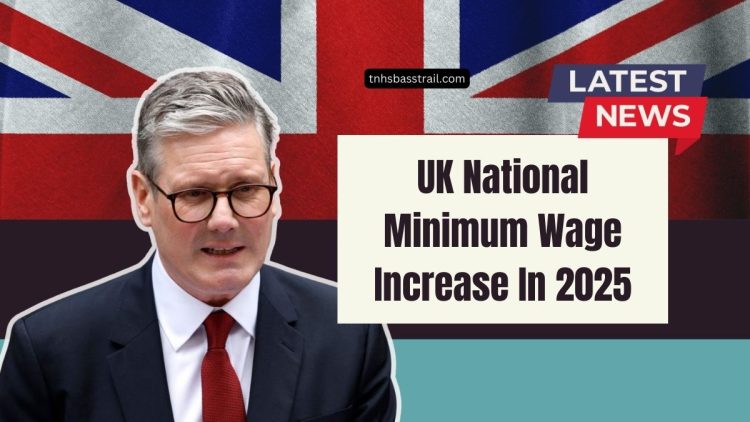The National Minimum Wage (NMW) in the UK plays a critical role in ensuring that workers are paid a fair wage for their labor. In recent years, the UK government has made efforts to boost the minimum wage to combat the rising cost of living and to promote fair working conditions.
As we approach 2025, many are eager to know what changes will be made to the NMW and how these adjustments will impact workers across the country.
This article outlines the key details about the NMW increase in 2025, including the new rates, eligibility requirements, and the potential effects on workers. Let’s dive into the specifics of this important update.
What is the National Minimum Wage (NMW) in the UK?
The National Minimum Wage is the minimum amount that employers are legally required to pay their workers in the UK. It applies to all workers who are 16 years or older and are considered employees.
The NMW aims to reduce inequality by providing a fair base wage for all workers and ensuring that they receive fair compensation for their labor.
New NMW Rates for 2025
In 2025, the UK government is set to implement a significant increase in the NMW to help workers cope with the rising cost of living and inflation. Here’s a breakdown of the new rates:
| Age Group | Current NMW Rate (2024) | New NMW Rate (2025) |
|---|---|---|
| Apprentices (Under 19) | £4.81 | £5.20 |
| 16-17 years old | £5.28 | £5.60 |
| 18-20 years old | £7.49 | £7.85 |
| 21-22 years old | £10.18 | £10.50 |
| 23 and Over (National Living Wage) | £10.92 | £11.20 |
As shown in the table, NMW rates will see increases across all age groups, with the most notable rise for those aged 23 and over, who will see the National Living Wage (NLW) increase to £11.20 per hour.
This increase is an essential step toward ensuring that workers earn a fair wage that reflects current economic conditions, especially given the rising costs of housing, utilities, and groceries.
Why Is the NMW Increasing?
The decision to increase the National Minimum Wage is part of the government’s ongoing efforts to tackle poverty and income inequality.
The increase comes after multiple years of rising inflation and a demand for better pay among low-income workers. In particular, the National Living Wage aims to ensure that workers over the age of 23 are paid a wage that allows them to live above the poverty line.
The UK’s minimum wage system has seen steady increases in recent years, driven by recommendations from the Low Pay Commission (LPC), an independent body set up to monitor and advise the government on NMW rates.
Who Will Benefit from the NMW Increase in 2025?
The NMW increase in 2025 will benefit millions of low-income workers across the UK, including those in hospitality, retail, construction, and care sectors. Specifically:
- Young Workers (16-17 years): The new rate of £5.60 will give young workers a better wage as they enter the job market.
- Apprentices: Apprentices will also benefit from an increase to £5.20, helping them gain financial stability as they undergo training.
- Workers Aged 18-22: These workers will see a rise in their wages, especially those aged 18-20, who will now earn £7.85 per hour.
- Over 23 (National Living Wage): The National Living Wage will increase to £11.20, directly impacting full-time workers over 23 years old, who make up a significant portion of the workforce.
How Will the NMW Increase Affect Employers?
For employers, the NMW increase means that businesses will need to budget for higher payroll expenses. Employers will need to ensure that they comply with the minimum wage laws and adjust their pay structures accordingly. Non-compliance can lead to significant fines and penalties.
The NMW increase in 2025 is a significant development in ensuring that workers across the UK receive a fair wage for their labor. With higher wages for all age groups and a focus on poverty reduction, this change will benefit millions of low-income workers.
As businesses adjust to the new pay rates, workers will see the positive impact of these increases in their weekly paychecks, helping to alleviate the financial pressures caused by rising living costs.
FAQs
What is the new NMW rate for workers aged 23 and over in 2025?
The National Living Wage for workers aged 23 and over will increase to £11.20 per hour in 2025.
Will the NMW increase affect apprentices?
Yes, the apprentice rate will increase to £5.20 per hour, helping young workers earn more as they gain skills.
How will the NMW increase impact employers?
Employers will need to adjust their payroll to comply with the higher wage rates, which may increase operational costs.

